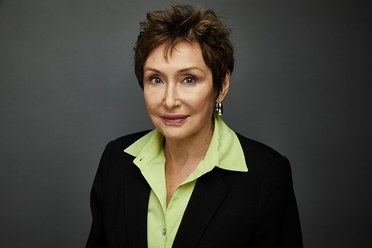
Madeline A Naegle
PhD FAAN PMHCNS-BC
Professor Emerita
madeline.naegle@nyu.edu
1 212 998 5321
433 FIRST AVENUE
NEW YORK, NY 10010
United States
Madeline A Naegle's additional information
-
-
Prof. Naegle is a Professor Emerita at NYU Rory Meyers College of Nursing. She is nationally and internationally known for program development, publications and implementation of policy in addiction, and psychiatric nursing, with a focus on older adults. Her activities have included efforts on the integration of behavioral health into health professional education and practice. Her leadership in organized nursing includes development of international consultation and education and establishment of the NYU College of Nursing WHO Collaborating Center in Geriatric Nursing Education. She was a Health and Aging Policy Fellow and served as associate director of the RMCON Center for Drug Use and HIV Research.
-
-
PhD in Nursing, New York UniversityMA in Nursing, New York UniversityBSN, College of Rochester
-
-
Mental healthSubstance use
-
-
American Academy of Nursing: Member, Expert Panel on Mental Health and Substance AbuseAmerican Nurses’ AssociationAssociation of Medical Educators and Researchers in Substance Abuse: MemberAmerican Psychiatric Nurses’ AssociationAmerican Psychiatric Nurses Association Tobacco Dependence Council: MemberEastern Nursing Research SocietyFulbright Association: New York and National ChaptersInternational Nurses’ Society on AddictionsNational League for Nursing: MemberNew York Academy of Science: Member USDHHS, Division of Nursing, Consortium on Alcohol and Other DrugsNew York University, Division of Nursing Alumni Assoc.: Member, Faculty AdvisorSigma Theta Tau, Pi Psi ChapterSigma Theta Tau, Upsilon Chapter: Member
-
-
Faculty Honors Awards
Excellence in Mentorship Award, Association of Medical Educators and Researchers in Substance Abuse (2010)Spirit Award, National Nurses’ Society on Addictions (2007)Honorary Recognition, New York State Nurses Association (2007)J.W. Fulbright Senior Fellow, University of Sao Paulo (2006)Distinguished Alumna Award, NYU Division of Nursing Alumni Association (2005)Hildegard E. Peplau Award, American Nurses’ Association (2002)Who’s Who, Medicine and Health Care (2000)Outstanding Alumna, Nazareth College of Rochester (2000)New York State Nurses’ Association Leadership Institute (1999)President’s Award, National Nurses Society on Addictions (1998)J.W. Fulbright Fellow, University of Malta (1995)Amanda Silver Distinguished Service Award, N.Y. County Registered Nurses’ Association (1994)Legislative & Health Policy Award, NYU Division of Nursing (1992)Academy of Women Achievers, YWCA (1991)Fellow, American Academy of Nursing (1989)Charter Member, Nazareth College (1988)Presidential Citation, New York County Registered Nurses’ Association (1986)Outstanding Young Women of America (1972)Sigma Theta Tau, National Honor Society for Nursing (1967)Kappa Gamma Pi, Catholic Women’s Colleges (1964) -
-
Publications
Guest editorial : Nurses, health and tobacco use
AbstractNaegle, M., & Baird, C. (2010). In Journal of Addictions Nursing (Vols. 21, Issue 2-3, pp. 67-68). 10.3109/10884602.2010.481494Abstract~Attracting health professional students to substance abuse research
AbstractKalet, A., Gillespie, C., Naegle, M., & More, F. (2009). In Medical education (Vols. 43, Issues 11, p. 1094). 10.1111/j.1365-2923.2009.03479.xAbstract~A novel curriculum to stimulate interest in substance abuse research
AbstractNaegle, M., Kalet, A. L., Ark, T. K., Gillespie, C., More, F. G., Naegle, M., Lee, J., Oh, S., Ross, S., & Gourevitch, M. N. (2009). In Journal of General Internal Medicine (Vols. 24, pp. 262-262).Abstract~Psychiatric nurses as champions for smoking cessation
AbstractNaegle, M., Baird, C., & Farchaus Stein, K. (2009). In Journal of the American Psychiatric Nurses Association (Vols. 15, Issue 1, pp. 21-23). 10.1177/1078390308331092Abstract~Screening for alcohol use and misuse in older adults
AbstractNaegle, M. (2008). In American Journal of Nursing (Vols. 108, Issues 11, pp. 50-59). 10.1097/01.naj.0000339100.32362.d9Abstract~Screening for alcohol use and misuse in older adults using the Short Michigan Alcoholism Screening Test-Geriatric Version. Video : http : //www.nursingcenter.com/prodev/cearticle.asp?tid=824866
AbstractNaegle, M. (2008).Abstract~Screening for alcohol use and misuse in older adults using the Short Michigan Alcoholism Screening Test-Geriatric Version. Video : http : //www.nursingcenter.com/prodev/cearticle.asp?tid=824866
AbstractNaegle, M. (2008).Abstract~Substance misuse and alcohol use disorders
AbstractNaegle, M. (2008). In E. Capezuti, D. Zwicker, M. Mezey, & T. Fulmer (Eds.), Evidence-based geriatric nursing protocols for best practice (3rd ed., pp. 649-676). Springer Publishing.Abstract~Nurses and matters of substance.
AbstractNaegle, M. (2006). In Imprint (Vols. 53, Issues 5, pp. 58-61, 63).Abstract~Nursing competencies in caring for patients with substance related disorders
AbstractNaegle, M. (2006). In SMAD Electronic Journal of Mental Health, Alcohol and Drugs.Abstract~